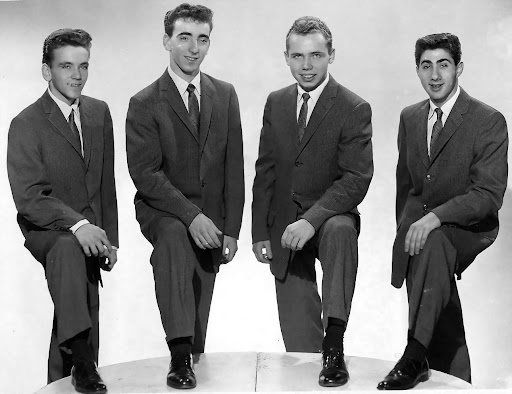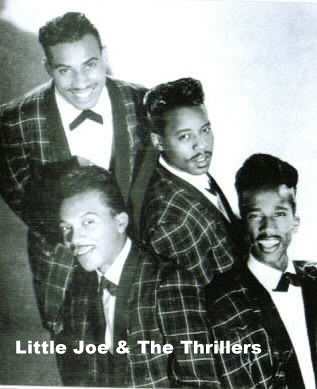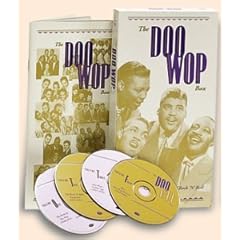 The album title was This Is Sam Cooke; it was a double album, part of the RCA “This Is So and So” series, which included Chet Atkins, Henry Mancini, Al Hirt, Eddie Arnold etc. I found it at the library, the downtown one I think. It was my introduction to Sam Cooke.
The album title was This Is Sam Cooke; it was a double album, part of the RCA “This Is So and So” series, which included Chet Atkins, Henry Mancini, Al Hirt, Eddie Arnold etc. I found it at the library, the downtown one I think. It was my introduction to Sam Cooke.That’s amazing. I grew up without Sam Cooke’s voice. That’s not to say I grew up without Sam Cooke. I heard Cupid by Johnny Nash, Another Saturday Night by Cat Stevens, Bring It On Home To Me by The Animals (well, as a flashback, I’m not that old), Wonderful World by Art Garfunkel. But honest, I don’t remember hearing Sam Cooke. And yes, I know he was dead before I was 8, but so what? That’s what “oldies” are for.
So that’s what I had, This Is Sam Cooke. Later I got A Man And His Music. I bought it at some department store I believe. Thing about that album is that every track was written by Cooke. It’s amazing as a collection that way, but then you don’t get to hear him do Gershwin (Summertime) or Willy Dixon (Little Red Rooster). Better not to have to choose.
Some of these tracks, that weren’t included on either collection, were taken from a TV advertised collection, and I remember picking that up at Pyramid.
And so ladies and gentlemen, Sam Cooke. I will not say anything about his artistry, how he could sing absolutely anything and make it sound as natural as breathing, how he could write the corniest love song, the grooviest dance song, the most profound song about life’s changes and inequalities, and find exactly the right voice and the right mood for each. I won’t say anything about that. It’s been said already by others, better than I could say it. Let’s just listen, shall we?
Sam Cooke:
• Touch The Hem Of His Garment – She is left, in the end, longing. If only, she says, I could touch the hem of his garment, I could be made whole. She doesn’t, though. She is there, in his presence, she sees him, he says touch me. But at the end of the song she has not gotten her wish, and we don’t know whether she will, and whether, if she does, whether she will, in fact, be “made whole.” This is Sam Cooke as leader of the gospel Soul Stirrers, doing an original, and this is ostensibly gospel, but there’s something very human going on here that belies the simple faith of your typical gospel record..
• That’s Heaven To Me – More “gospel.” Heaven, to Cooke, is very earthly indeed.
• I’ll Come Running Back To You – Total and complete self sacrifice, but in a secular romantic context, as it will be from now on. “I’ve got my pride” he sings, while he disproves that very notion throughout. A hit in the winter of 1958.
• You Send Me –I don’t think we use that expression anymore. I think Olive Oil used it, though, in the old Popeye cartoon. “You send me,” she said, to Bluto… This was Cooke’s first hit, in the fall of 1957, and his only number 1.
• Win Your Love For Me – Here is where it’s hopeless. We’re not told why, just that it would take “a miracle.” Man, if she hears him sing this, that’s all it should take. From the fall of 1958.
• Just For You – It’s a nice romantic sentiment, just not very sustainable in the long run.
• Chain Gang – Poor guys, incarcerated for who knows what, “working their lives away.” But wait, isn’t that all of us? Jim Croce covered this. From the fall of 1960.
• When A Boy Falls In Love – A song about total and utter infatuation. Here is where we hear the difference between Nat King Cole and Sam Cooke. A hit in the summer of 1965. RCA was milking the legend.
• Only Sixteen – An old timer of 17 looks back on an old love. Covered by Craig Douglas in England, and by Dr. Hook in the 70s. Listen to the melody. From the summer of 1959.
• Wonderful World – Love will make you fail in school, sang Mickey to Sylvia. Oh Mickey, retorted Sylvia, school will make you fail in love. But the truth, for those of us who were there, was that school will make you popular, or school will make you miserable. And success with the ladies was far too often a function of success on some level, often academic. Ah, sang Sam Cooke here, if only it weren’t so. This song was revived by Herman’s Hermits in 1965, and by Art Garfunkel (with Paul Simon and James Taylor) in 1978. From the summer of 1960.
• Cupid – Revived by Johnny Nash in 1969, and Johnny Rivers did it on one of his albums.. A song of desperate longing, for a girl “who doesn’t know I exist.” From the summer of 1961.
• Nothing Can Change This Love – The idea that love is immutable is a popular one in pop songs. It’s also silly. From the fall of 1962.
• Rome Wasn’t Built In A Day – Wait, sings Sam, wait, all comes to he who waits. But Sam can’t wait.
• Love Will Find A Way – Sam goes slightly country on this sermon on the certainty of love.
• A Change Is Gonna Come – Sam leaves all the confection behind on this mini-masterpiece. Indeed, he lets out all the stops. “I’m afraid to die” he sings, in this song that was released just after he was murdered. A hit for Cooke in the winter of 1965, the B side of Shake. There are many covers of this: Otis Redding, The Fifth Dimension, and Three Dog Night, on which Chuck Negron absolutely tears the roof off.
• Everybody Likes To Cha Cha Cha – Well this is silly, sure. But really this is a tribute to the human spirit, and overcoming limitations. Seriously. A hit in the spring of 1959.
• Another Saturday Night – All dressed up with no placed to go. I feel your pain, Sam, I feel your pain. A hit in the spring of 1963. Cat Stevens revived this in 1974.
• Meet Me At Mary’s Place – A slow paced song about having fun fun fun. I assume that Mary’s Place is a night club of some sort, but it’s not all that clear…
• Having A Party – Another song about having fun. “Having such a good time” he sings, but there’s a slight air of melancholy here that doesn’t quite jibe. From the summer of 1962.
• Good Times – Let the good time [sic] roll, he sings. It seems that all his party songs are kind of slow, loping, tempered by a dose of something that isn’t exactly good times. Something about “feeling good” here that is specifically transient. From the summer of 1964, when Beatle music was rampant.
• Twistin’ The Night Away – He picks up the tempo here, but it’s still not exactly twisting tempo. A tribute to the cross cultural nature of the twist phenomenon. From the winter of 1962. Rod Stewart covered this.
• Shake – This was Otis Redding’s standard show opener. The Small Faces covered it also. From the winter of 1965. The A side of A Change Is Gonna Come. • Somebody Have Mercy – Sam laments his bad luck and his dysfunctional relationship. This was the flip side of Nothing Can Change This Love, and was a hit in the fall of 1962.
• Sad Mood – Funny thing about Sam Cooke, he’s never entirely happy; a note of melancholy always creeps in. But he’s never entirely sad either, there’s a bounce here. From the winter of 1961.
• Good News – Not the Muddy Waters song. This is some kind of reconciliation. Amazing how simple it always is. From the winter of 1964.
• Bring It On Home To Me – A tour de force. Sends chills up the spine. Lou Rawls sings the responses (yeah!). This was a favourite for covers but it was The Animals who blew away the competition. From the summer of 1962.
• Soothe Me – An odd expression for a love song. A hit for Sam & Dave in 1967.

• That’s Where It’s At – Sam describes the ultimate romance. This was the B side of Cousin Of Mine, from the fall of 1964.
• Frankie And Johnny – The perennial tale of jealousy and murder. Brook Benton had done this 2 years earlier, and Elvis revived it in 1966. This version was a hit in the fall of 1963.
• Summertime – Well, everyone had a crack at this, and so did Sam Cooke. Sure he’s great, and sure he sings this better than 99.% of mortals, but the problem is that Billy Stewart came along in 1966 and blew everyone else out of the water. This was the B Side of You Send Me, and it reached number 81 in its own right in the fall of 1957.
• Feel It – Singing to his girl. Don’t fight it, he says, feel it, and what he’s singing about it music, dancing. Sure. From the fall of 1961.
• (I Love You) For Sentimental Reasons – Cooke in direct competition with Nat King Cole on this one. He wins. From the winter of 1958.
• That’s It - I Quit - I’m Moving On – What happens when you hit the wall. Sounds a bit glib, but the sentiment is genuine. From the spring of 1961.
• Cousin Of Mine – This tongue-in-cheek comic opera was on the chart in the fall of 1964.
• Send Me Some Lovin’ – Cooke in direct competition with Little Richard. Can’t declare a winner though; each is great in his own way. From the winter of 1963.
• Little Red Rooster – In case we were wondering whether Sam Cooke could sing blues. Well, nobody would mistake him for Bobby Bland, but Cooke could sing anything. Written by Willy Dixon, recorded by Howlin’ Wolf, and even a UK hit by The Rolling Stones. From late 1963.
• Sugar Dumpling – That he could make this as convincing as A Change Is Gonna Come is all the tribute you need. From the fall of 1965.

 The Shepherd Sisters have their own
The Shepherd Sisters have their own 
 It was 1970 and it was the Labour Day weekend. I was 13 years old and the local top 40 station, which was actually a top 30 station, and which was called CFRW, was having a Top 300 Of All Time weekend.
It was 1970 and it was the Labour Day weekend. I was 13 years old and the local top 40 station, which was actually a top 30 station, and which was called CFRW, was having a Top 300 Of All Time weekend. Justis had two hits of his own, both in the late 50s on Phillips Records, and Phillips was not the European Company, it was Sam Phillips’ label, Sun’s corporate cousin. And so Justis belongs to that elite company that includes Elvis, Jerry Lee, Roy Orbison, Johnny Cash, Carl Perkins etc.
Justis had two hits of his own, both in the late 50s on Phillips Records, and Phillips was not the European Company, it was Sam Phillips’ label, Sun’s corporate cousin. And so Justis belongs to that elite company that includes Elvis, Jerry Lee, Roy Orbison, Johnny Cash, Carl Perkins etc. Thurston is a funny name. Think Thurston Howell III from Gilligan’s Island. And the Thirsty character in Hi And Lois; his real name is Thurston.
Thurston is a funny name. Think Thurston Howell III from Gilligan’s Island. And the Thirsty character in Hi And Lois; his real name is Thurston. The stuff I have amazes me. I never heard of Marion Ryan. Neither have you I bet. But here she is.
The stuff I have amazes me. I never heard of Marion Ryan. Neither have you I bet. But here she is. My wife and I, we both have our Pet Clark experiences. For me, Pet was part of my childhood, my cousin had a copy of Downtown and we borrowed it for a while, and from the age of 8 I lived with her singles on the radio. She was a regular. She had 21 top 100 records, 16 of which I actually remember hearing, plus one that I remember that wasn’t on the top 100 (Call Me). All of her stuff was chirpy and happy, even the sad songs were happy, which should tell you something. I got a greatest hits collection from the West Kildonan Library, that was a long time ago. It was a standard collection, Supersounds From The Superstar, and it was missing some key tracks, like Don’t Sleep In The Subway, but it had most of the big ones.
My wife and I, we both have our Pet Clark experiences. For me, Pet was part of my childhood, my cousin had a copy of Downtown and we borrowed it for a while, and from the age of 8 I lived with her singles on the radio. She was a regular. She had 21 top 100 records, 16 of which I actually remember hearing, plus one that I remember that wasn’t on the top 100 (Call Me). All of her stuff was chirpy and happy, even the sad songs were happy, which should tell you something. I got a greatest hits collection from the West Kildonan Library, that was a long time ago. It was a standard collection, Supersounds From The Superstar, and it was missing some key tracks, like Don’t Sleep In The Subway, but it had most of the big ones.
 I borrowed The Very Best Of Jimmy Reed from a friend of mine, whom I shall call Sausages. He had more albums than I had.
I borrowed The Very Best Of Jimmy Reed from a friend of mine, whom I shall call Sausages. He had more albums than I had. Freeman’s career was all over the map: jazz, pop, R & B, rock and roll. He was a member of B Bumble & The Stingers, and he arranged sessions for Frank Sinatra and Dean Martin. He had 5 hits on the top 100, but apart from Raunchy, none made the top 40. 4 of them show up on a CD called Raunchy, which I don’t have, and the cheapest copy of which is $106 USD on Amazon (25 tracks). Very strange, that, considering that all his hits were on Imperial.
Freeman’s career was all over the map: jazz, pop, R & B, rock and roll. He was a member of B Bumble & The Stingers, and he arranged sessions for Frank Sinatra and Dean Martin. He had 5 hits on the top 100, but apart from Raunchy, none made the top 40. 4 of them show up on a CD called Raunchy, which I don’t have, and the cheapest copy of which is $106 USD on Amazon (25 tracks). Very strange, that, considering that all his hits were on Imperial. Genuine one-hit wonders. One can only imagine how thrilling The Thrillers must have been. Perhaps Michael Jackson named his big album after them. Perhaps.
Genuine one-hit wonders. One can only imagine how thrilling The Thrillers must have been. Perhaps Michael Jackson named his big album after them. Perhaps.
 The Rays, who had one of the greatest doo-woop / slow prom dance hits of all time, don’t even get the honour of being one hit wonders. They had three more chart singles after Silhouttes, including its flip side, Daddy Cool. None of the 3 placed higher than 49, and I don’t have any of them.
The Rays, who had one of the greatest doo-woop / slow prom dance hits of all time, don’t even get the honour of being one hit wonders. They had three more chart singles after Silhouttes, including its flip side, Daddy Cool. None of the 3 placed higher than 49, and I don’t have any of them. Figure this guy. He was more than anything a country singer, known best for 3 pop songs, all of which were hits bang bang bang during the last 3 months of 1957. He had 3 chart records in 1958, but none made the top 40 and they are all forgotten.
Figure this guy. He was more than anything a country singer, known best for 3 pop songs, all of which were hits bang bang bang during the last 3 months of 1957. He had 3 chart records in 1958, but none made the top 40 and they are all forgotten. Who was Joe Bennett? Who were The Sparkletones?
Who was Joe Bennett? Who were The Sparkletones? Ok, 1-2-3, what’s the most generic name we can come up with? Even in 1957, when rock and roll was a relatively new phenomenon, a name like Rock And Roll Trio didn’t exactly insinuate itself into your mind with its originality. Of course, this kind of thing can work by its very perversity (think of The Band) but that didn’t seem to happen with these guys. In fact, their very name is subject to a high level of uncertainty; they were known variously as The Rock And Roll Trio, The Johnny Burnette Trio, and The Johnny Burnette Rock And Roll Trio.
Ok, 1-2-3, what’s the most generic name we can come up with? Even in 1957, when rock and roll was a relatively new phenomenon, a name like Rock And Roll Trio didn’t exactly insinuate itself into your mind with its originality. Of course, this kind of thing can work by its very perversity (think of The Band) but that didn’t seem to happen with these guys. In fact, their very name is subject to a high level of uncertainty; they were known variously as The Rock And Roll Trio, The Johnny Burnette Trio, and The Johnny Burnette Rock And Roll Trio. Your classic one hit wonder, The Tune Weavers were a quartet, 2 male, 2 female. This “collection” comes from Echoes Of A Rock Era, the source of so many of these odds and ends.
Your classic one hit wonder, The Tune Weavers were a quartet, 2 male, 2 female. This “collection” comes from Echoes Of A Rock Era, the source of so many of these odds and ends.

 Enter the girl groups. One book I read labeled The Shirelles the first girl group. Another book said that it was The Chantels. Well, The Chantels were there first, but The Bobbettes were there before either.
Enter the girl groups. One book I read labeled The Shirelles the first girl group. Another book said that it was The Chantels. Well, The Chantels were there first, but The Bobbettes were there before either. Well, I’ve never found a “Best Of Russ Hamilton” or a “Russ Hamilton’s Greatest Hits,” so I had to put this together myself, and I must say that I did a splendid job, collecting every single one of his top 100 singles. Well, sure he only had one, but is that my fault? (Check out Amazon, there is one copy of one collection currently available.)
Well, I’ve never found a “Best Of Russ Hamilton” or a “Russ Hamilton’s Greatest Hits,” so I had to put this together myself, and I must say that I did a splendid job, collecting every single one of his top 100 singles. Well, sure he only had one, but is that my fault? (Check out Amazon, there is one copy of one collection currently available.)

